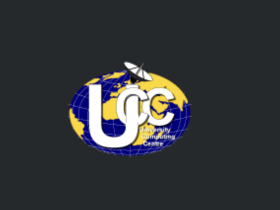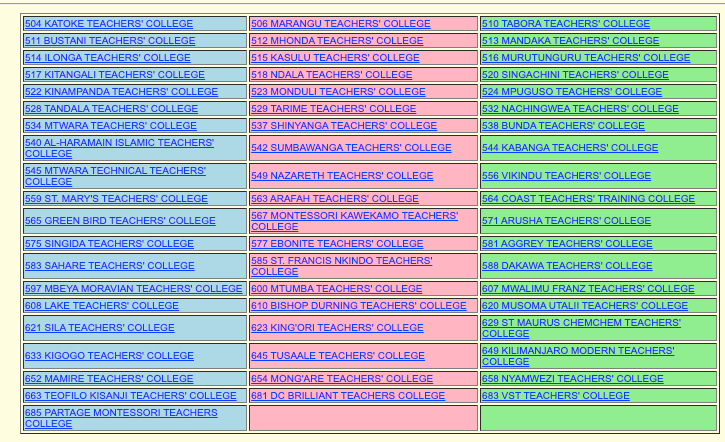
Top Diploma Courses in Tanzania for Career Advancement, Diploma courses in Tanzania play a crucial role in the educational landscape, serving as an intermediary option between secondary education and higher education. These programs are specifically designed to equip students with practical skills and knowledge tailored to various industries. By focusing on a blend of theoretical learning and hands-on experience, diploma courses prepare graduates for entry-level positions across multiple sectors, thus enhancing their employability.
In the Tanzanian context, vocational training and diploma programs are increasingly recognized for their importance in fostering a skilled workforce. They not only provide essential competencies relevant to specific job roles but also instill crucial soft skills such as communication, teamwork, and problem-solving. As the country continues to develop economically, the demand for skilled labor is on the rise, making diploma courses an attractive option for students looking to improve their career prospects.
Another significant benefit of pursuing diploma courses is the shorter duration compared to traditional degree programs, which often require several years of study. Most diploma courses can be completed within one to three years, allowing students to enter the job market more quickly while still obtaining a credential that has value and recognition. This flexibility is particularly appealing to individuals seeking to balance work, family, and educational commitments.
Moreover, diploma programs in Tanzania often emphasize practical training and internships, ensuring that students gain valuable experience that can boost their resumes. By aligning educational offerings with the needs of local industries, these courses contribute to addressing the skills gap present in many sectors, ultimately leading to improved employment rates among graduates. This dynamic educational avenue not only enriches participants personally and professionally but also supports national development goals by fostering a more competent labor force.
Overview of Education System in Tanzania
The education system in Tanzania is structured into several key levels: primary, secondary, and higher education. At the foundation, primary education typically lasts for seven years and is aimed at providing basic literacy and numeracy skills. Following this, students progress to secondary education, which is divided into two cycles lasting four years, where they receive a broader knowledge base and prepare for advanced studies or vocational training.
Higher education in Tanzania encompasses universities, colleges, and vocational training institutions. Diploma courses, which play a critical role in career advancement, are offered primarily at colleges and vocational institutions. These programs focus on practical skills and knowledge necessary for specific professions, aligning with the country’s increasing demand for skilled labor in various sectors. As such, the government has implemented policies to promote and enhance vocational training, aiming to equip students with competencies relevant to the job market.
In recent years, both government and private institutions have become active contributors to the diploma course offerings in Tanzania. The government has established vocational training centers across the country to facilitate access to educational opportunities. Additionally, private entities have begun to fill gaps in the educational landscape by providing diverse diploma programs designed to meet the evolving needs of the economy.
This collaborative effort between government and private sectors is essential for addressing unemployment and underemployment challenges by equipping graduates with career-ready skills. As the educational landscape continues to evolve, diploma programs are increasingly regarded as a viable path for professional development, thereby fostering economic growth and individual advancement in Tanzania.
Top Industries Hiring Diploma Graduates
Tanzania’s job market is expanding rapidly, creating various opportunities for diploma graduates. Several industries are actively seeking skilled professionals with diploma qualifications, contributing significantly to the country’s economic development.
The healthcare sector is one of the largest employers of diploma graduates. With a growing population and increasing healthcare needs, there is a high demand for skilled personnel such as nurses, medical technicians, and healthcare assistants. Diploma programs in nursing and medical laboratory technology are particularly beneficial, equipping graduates with essential skills to meet the industry’s demands.
Engineering is another prominent field seeking diploma holders. The construction and manufacturing industries, which are vital for Tanzania’s infrastructure development, require qualified technicians and engineering assistants. Programs focused on civil, mechanical, and electrical engineering provide graduates with practical skills essential for success.
Information technology has seen significant growth and presents an array of opportunities for diploma graduates. The rise of digitalization in various sectors necessitates skilled IT professionals, such as software developers, network administrators, and support technicians. Diploma courses in IT and computer science prepare students for these roles, helping them to meet the needs of this ever-evolving industry.
The hospitality sector is another area experiencing a surge in demand for diploma graduates as tourism continues to thrive. Positions available include hotel management, food and beverage services, and event planning roles. Diploma programs in hospitality management provide the theoretical and practical skills necessary for these positions, aligning with the sector’s requirements.
Lastly, agriculture plays a pivotal role in Tanzania’s economy, employing a substantial portion of the population. Diploma courses in agricultural sciences equip students with knowledge of modern farming techniques, agribusiness management, and sustainable practices, making them valuable assets to the industry.
In conclusion, diploma graduates in Tanzania can find numerous opportunities across various sectors, including healthcare, engineering, information technology, hospitality, and agriculture. By pursuing relevant diploma programs, individuals can significantly enhance their career prospects and contribute to the nation’s growth.
Top Diploma Courses in Tanzania for Career Advancement
Popular and Best Diploma Courses in Tanzania
Tanzania offers a wide array of diploma courses, catering to the diverse interests and career aspirations of its students. Among the most sought-after programs are Grouped in These categories:
- i. Ordinary Diploma in Oil and Gas Engineering Technology
- ii. Ordinary Diploma in Environmental Engineering and Management
- iii. Ordinary Diploma in Naval Architecture and Offshore Engineering
- iv. Ordinary Diploma in Metallurgy and Mineral Processing Engineering
(i) Health and Allied Sciences (‘Health & Allied Sciences’);
- (ii) ‘Diagnostic Radiotherapy’;
- (i) ‘Clinical Dentistry’;
- (iii) ‘Occupational Therapy’;
- (iv) ‘Physiotherapy’;
- (v) ‘Clinical optometry’;
- (vi) ‘Dental Laboratory technology’;
- (vii) ‘Orthotics & Prosthetics’;
- (viii) ‘Health record & information’;na
- (ix) ‘Electrical and Biomedical Engineering’
(ii) Teaching Education (‘Education and Teaching’);
Programs in this category are as follows:-
- (i) Basic Teaching Diplomas: Science Teaching Diploma in Physics, Chemistry and Mathematics; and
- (ii) Diplomas in Education and Vocational Training (TE&VET).
(iii) Transport and Logistics (‘Transport & Logistics’);
Programs in this group are as follows:-
- (i) ‘Aircraft Mechanics’;
- (ii) ‘Ship building and repair’;
- (iii) ‘Railway construction and maintenance’; and
- (iv) ‘Global Logistics and Supply Chain Management.
(iv) Energy Engineering (‘Energy Engineering’);
Programs in this group are as follows:-
- (i) ‘Renewable Energy Engineering (Hydro, Wind, Solar)’; and
- (ii) ‘Pipeline, Oil and Gas Engineering’.
(v) Mining and Earth Science (‘Mining & Earth Science’)
Programs in this group are as follows:-
- (i) ‘Lapidary and Jewelry’; and
- (ii) ‘Mineral Processing’.
(vi) Agriculture and livestock (‘Agriculture & livestock’)
Programs in this group are as follows:-
- (i) ‘Leather Technology’;
- (ii) ‘Food Technology and Human Nutrition’;
- (iii) ‘Sugar Production Technology’;
- (iv) ‘Veterinary Laboratory Technology’;
- (v) ‘Horticulture’;
- (vi) ‘Irrigation Engineering’; and
- (vii) ‘Agro Mechanization’.
These Diploma courses are designed to equip individuals with essential skills and knowledge required in today’s competitive job market.
For example Nursing diplomas, usually lasting three years, focus on areas such as anatomy, pharmacology, and patient care. Students engage in both theoretical learning and practical placements in healthcare facilities, preparing them to compete in a vital and demanding sector. Those who complete this program gain vital skills in patient assessment, critical thinking, and compassionate care, making them valuable assets in the healthcare workforce.
The Diploma in Civil Engineering, often offered over the course of three years, encompasses subjects like construction materials, structural analysis, and environmental engineering. This program equips students with the technical expertise to plan, design, and manage infrastructure projects. Graduates are trained to uphold safety standards and contribute to sustainable development efforts, which are crucial in a rapidly growing nation like Tanzania.
Finally, the Diploma in Travel and Tourism, usually spanning two years, immerses students in subjects such as hospitality management, travel marketing, and service excellence. This course not only prepares students for roles in the travel and tourism industry but also instills essential skills such as customer service, itinerary planning, and cultural awareness, validating the importance of this sector in Tanzania’s economy.
Institutions Offering Diploma Courses in Tanzania
Tanzania boasts a diverse array of institutions offering diploma courses that cater to the growing demand for skilled professionals across various sectors. These institutions include universities, colleges, and vocational training centers, each contributing uniquely to education and professional development in the country.
Among the prominent universities,
- University of Dar es Salaam (UDSM) stands out, offering diploma programs in various fields
- Nelson Mandela African Institute of Science and Technology (NM-AIST), which primarily focuses on science and technology-related diploma courses.
- Vocational Education and Training Authority (VETA) plays a crucial role in providing practical skills that enhance employability. VETA encompasses various centers throughout Tanzania, offering diploma courses in fields such as carpentry, plumbing, and hospitality management. Admission to VETA institutions usually entails meeting basic education requirements and demonstrates a passion for hands-on learning.
- Ardhi University and the College of Business Education (CBE) also offer diploma programs tailored to market demands. These institutions provide accessible options for students seeking specialized training in areas such as urban planning and business management.
- Check Here Diploma Colleges in Tanzania: https://assengaonline.com/category/nacte/page/3/
Admission Requirements and Application Process
Typical admission requirements include a Secondary Education Certificate (Form IV) with satisfactory grades. Some programs may require specific subjects or prior vocational training.
Embarking on a diploma course in Tanzania requires prospective students to meet specific admission criteria, which can vary depending on the institution and the field of study. Generally, the minimum educational prerequisite for most diploma programs is the completion of O-Level secondary education. Students must have attained a minimum number of passes, often including subjects relevant to their area of interest, such as mathematics and languages..
As for timelines, application deadlines for diploma courses can differ between institutions. Many colleges and universities in Tanzania operate on an academic calendar that begins in January or September. Therefore, it is essential that prospective students stay informed about when applications open and the related deadlines. It is advisable to submit applications well in advance to allow ample time for processing.
Benefits of Choosing a Diploma Course
Key Benefits of Studying in Diploma Colleges in Tanzania
Diplomas offer:
- •Affordable tuition
- •Direct career paths
- •Opportunities for specialization
Enrolling in a diploma course presents numerous advantages for individuals seeking to enhance their career prospects. One significant benefit is the relatively lower financial cost compared to traditional degree programs. Many diploma courses are designed to be more affordable, making education accessible to a broader audience. This is particularly important in regions where economic constraints can limit educational opportunities, such as Tanzania. The reduced tuition fees often enable students to invest in their education without accumulating overwhelming debt.
Another compelling reason to consider a diploma course is the shorter duration of study. Typically, diploma programs can be completed in one to two years, allowing students to enter the job market much sooner than those pursuing a full degree. This quicker path is advantageous for individuals eager to start their careers and gain practical experience, particularly in fast-evolving industries. As a result, graduates can begin to establish themselves professionally while still being relatively young.
Moreover, diploma courses often emphasize practical, hands-on training that aligns closely with industry requirements. This focus on applied learning equips students with relevant skills that are directly applicable in the workforce. Such training not only enhances the employability of graduates but also prepares them for the specific demands of their chosen fields. Employers tend to value candidates who possess practical experience and competencies, which are frequently developed in diploma courses. Consequently, graduates often find themselves at an advantage in the competitive job market.
These factors combined make diploma courses an appealing option for individuals aiming for career advancement. The affordability, expedited educational timeline, and skills-focused training provide a unique pathway to success in various professional realms.
Career Opportunities After Completing a Diploma
Completing a diploma can open a plethora of career opportunities for individuals looking to improve their professional standing. Diplomas often serve as a foundation for various specific job roles, providing essential skills and knowledge that employers value. Among the diverse fields that welcome diploma graduates are healthcare, information technology, hospitality, and engineering, each offering unique career paths.
In the healthcare sector, diploma holders can pursue roles such as nursing assistants, pharmacy technicians, or medical laboratory technicians. These positions not only promise job stability but also present opportunities for further education and specialization. In terms of salary, entry-level positions in healthcare may range from $400 to $800 per month, depending on the role and geographical location, while experienced professionals can earn significantly more.
The technology sector is another promising domain for diploma graduates. Positions in this field include IT support specialists, web developers, and network technicians. With the rapid advancement of technology, there is always a high demand for skilled workers. Starting salaries in IT roles often range from $500 to $1,000 per month, with ample opportunities for career advancement through further training and experience.
Hospitality is yet another vibrant industry that values diploma graduates. Roles such as hotel management assistants and event coordinators can be both rewarding and fulfilling. As professionals gain experience and exhibit leadership skills, they can progress to managerial positions, often with salaries that can exceed $1,500 monthly.
Real-life success stories abound, with many diploma holders illustrating how their qualifications led to enriching careers. For instance, a graduate with a diploma in business management advanced to a managerial role in a reputable firm, showing that commitment and skill development post-diploma can lead to significant professional advancement. This highlights the importance of pursuing continuous learning and growth after completing diploma courses.
Conclusion and Further Resources
In today’s competitive job market, pursuing diploma courses in Tanzania has become an essential step towards career advancement. These programs offer individuals the opportunity to acquire specialized skills and knowledge that are highly valued by employers. With the increasing demand for skilled professionals in various sectors, such as technology, healthcare, and business, diploma courses serve as a gateway for students to enhance their career prospects. They provide practical training that equips learners with the tools necessary to succeed in their chosen fields.
For those considering enrolling in a diploma program, it is crucial to assess the various options available and choose courses that align with their career goals and interests. Researching reputable institutions that offer quality education will ensure a solid foundation for future employment. Furthermore, students can benefit significantly from guidance and mentorship provided by academic advisors and industry professionals.
To support prospective students in their academic journey, numerous resources are available. Websites such as the National Council for Technical Education (NACTE) offer comprehensive information on accredited institutions and available diploma programs in Tanzania. These resources can help students make informed decisions when looking for quality education. Additionally, consultation services are often provided by educational centers that assist students in selecting the right courses based on their aspirations.
Networking with professionals in the industry and attending educational fairs can also provide valuable insights into the relevance of various diploma courses. Such interactions can help students to understand the current market trends and the skills that employers are seeking, ultimately guiding them towards making strategic decisions that will further their career advancement.













Leave a Reply
View Comments